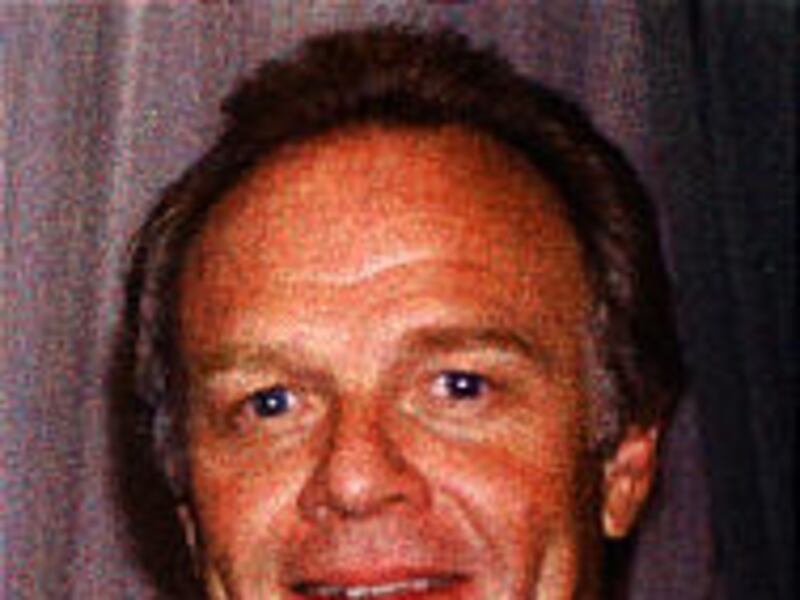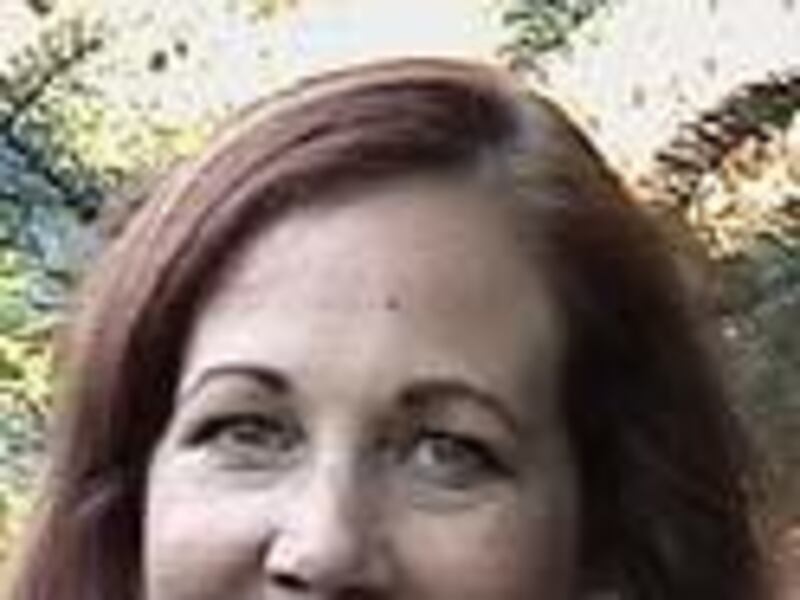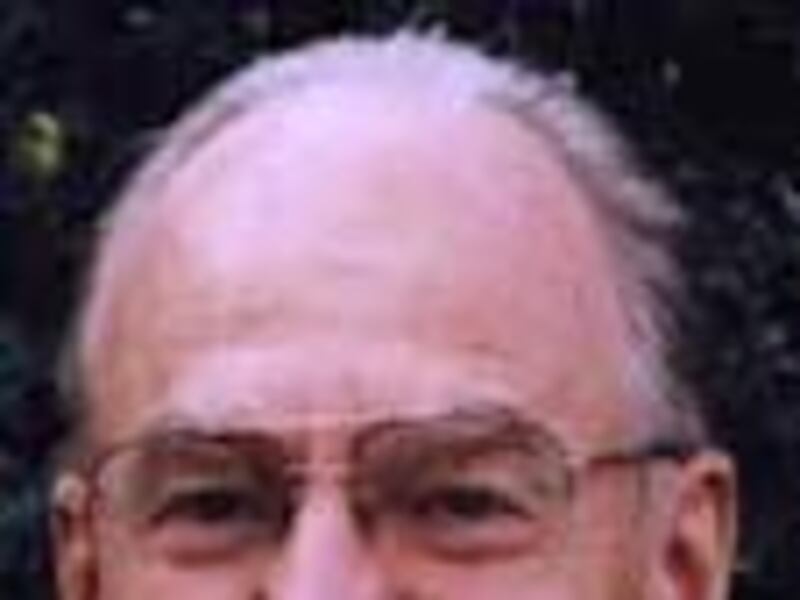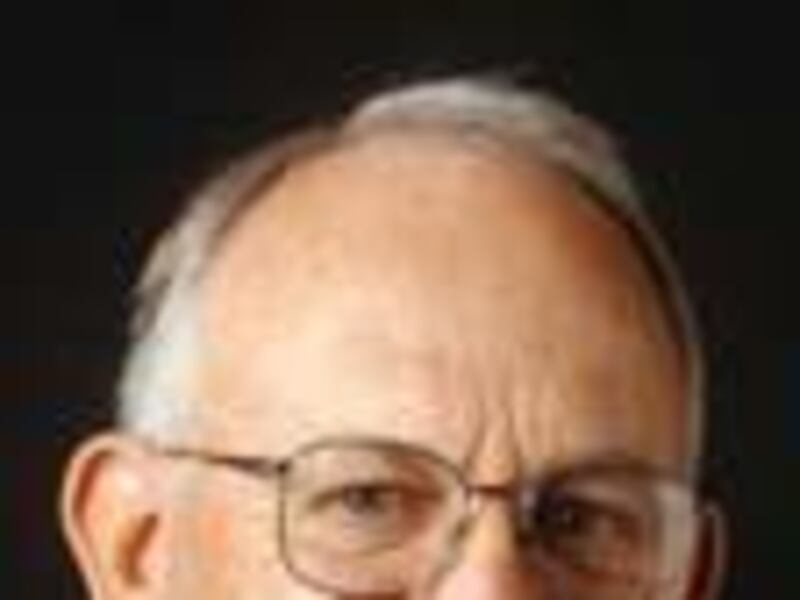HOLLADAY — The form of Holladay's city government will change in January, and the mix of elected officials running that new government could look very different as well — depending on the outcome of the Nov. 4 election.
Mayor Dennis Larkin will be replaced by either Dennis Webb or Bob Neslen. As few as two of the five current City Council members may be back. And once all that is decided, another new name will surface when the city hires its first full-time city manager early next year.
But change is good, or so Holladay voters implied with their Aug. 5 vote to change Holladay's form of city government from the council-mayor form to the council-manager form. The result of that special election cut Larkin's four-year term in half. And after the mayor's challenge to the Utah Supreme Court failed, he chose to ride off into the sunset rather than run for re-election.
Besides, being mayor of Holladay isn't what it used to be. Thanks to the special election, Holladay's mayoral position has been changed from a full-time post in charge of the city's administration to a part-time role. The new mayor, who will serve just two years before having to run for reelection, will serve as a voting member on the new six-member council. Essentially, the mayor of Holladay is now a council member elected at-large. But the two candidates vying to succeed Larkin don't see it that way. They take the title of mayor very seriously, and see the opportunity as one to transform a city government that has been bitterly divided into a more civil and efficient unit. Both Webb, who won the October primary election by a healthy margin, and Neslen, who helped lead the charge for governmental reform, believe they are just the fresh face the city needs to lead it into its new political era.
The District 2 City Council seat, without an incumbent in the race, will have a new council member come January — either Lynn Pace, who won the primary, or Dennis Ickes, who survived the primary by just four votes.
In Districts 4 and 5, respectively, incumbents Steve Peterson and Hugo Diederich hope to return. They were on opposite sides of the change-in-government debate, with Peterson voting to hold the election and Diederich — a supporter of Larkin — opposing it. But neither incumbent was seriously challenged in the primary.
Council chairwoman Sandy Thackeray, who favored the change-of-government vote, and Councilman Grant Orton, generally a Larkin supporter along with Diederich, are not up for re-election and will serve at least two more years.
The bottom line is, the new six-member council will contain either two, three or four members from the current City Council. But with Larkin gone, and the mayor's office and council no longer pitted in an institutionalized power struggle, every candidate in the race is optimistic that a new, more cooperative era of city government is about to commence. Here is a brief look at each of the candidates:
Mayor
Dennis Webb, a 54-year-old entrepreneur and software developer, is one of the founders of Franklin Covey. He hopes many residents who voted for Jay Todd, third in the primary, will vote for him in the general election.
"Jay is a dear friend and he and I are kind of new to city politics, so I feel like those votes will go our way because we ran the same kind of campaign, which was fresh face/healing, so we're feeling optimistic," he said.
Webb wants to foster a "government that listens, that's open to all people." He advocates fiscal responsibility and wants to provide quality service to residents, in part by making a smart choice for Holladay's first city manager.
Bob Neslen, 44, is a former member and chairman of the Holladay Planning Commission, and was one of the founding members of We Put Holladay First, which successfully campaigned to change the city's form of government.
Neslen does not want to see the land behind the Tuscany restaurant turned into a park "because the city would have to bond for that and I think the city is too young, and we have too many infrastructure needs to take care of, and I'm not in favor of any tax increases."
Neslen said the city's sidewalks are in desperate need of repair, and said 30 percent of the city's fire hydrants are inadequate for fire protection. He does not favor the current Holladay Village Center master plan and wants it revised. He is against paying more than $1 million to bury power lines in downtown Holladay.City Council, District 2
Lynn Pace, 42, is a deputy city attorney for Salt Lake City. He grew up in Holladay, moved away and then returned in 2000.
He would like to see less contention in city government. He wants the city to live within its means and refuse to raise taxes.
Pace advocates the development of a "long-term, stable and secure plan for municipal services," and wants to protect residential neighborhoods from crime and traffic. Pace said he was motivated to run for office partly because he saw a strong parallel between what he has been doing professionally for the past seven years — working with the mayor and City Council of Salt Lake City — and what he would be doing as a Holladay council member.
"Having returned to raise my children here, I have a vital interest in making sure the city turns out right," he said.
Dennis Ickes, 60, is an attorney in private practice who has lived in Holladay for 26 years. A former deputy secretary of the U.S. Department of the Interior, Ickes touts his experience in Washington as a definite asset.
At the top of his agenda "is just to calm the city government down to a professional, businesslike attitude about government," he said. "Then in addition to that, we have to select a city manager who is imminently qualified."
Ickes also wants to improve the Holladay Village Center area in a way that will not hurt existing businesses.
City Council, District 4
Steve Peterson, 52, is a 27-year resident of Holladay who is seeking his second term. He is a senior vice president and manager of the corporate banking division of Zions Bank.
If reelected, one issue Peterson plans to focus on is traffic control. That could mean taking certain services, like the post office and liquor store, and "push them to the edge of the city" so they would generate less traffic downtown, he said.
He does not favor a park on the land behind the Tuscany, but would like to see it developed to include open space and businesses.
Cindy Hanks, 45, is a 14-year resident of Holladay. She is a board member for the National Charity League, PTA president at Cottonwood Elementary School and a member of the Utah Youth Village fund-raising board.
Hanks hopes she can have a soothing influence on city politics.
"I really saw that the incumbent (Peterson) was one of the reasons why we had the contention, and I believed that he needed to be replaced," she said.
The Cottonwood Lane resident is concerned about the high speeds motorists are traveling in residential zones and pledges to push for traffic calming devices for Holladay.
City Council, District 5
Hugo Diederich, 68, is a retired marketing executive seeking his second term. The 35-year resident previously served on the Holladay-Cottonwood Community Council.
Diederich hopes to "maintain the value and integrity and the nature of the residential neighborhoods." He is concerned about "commercial creep" infringing on residential areas and wants to make sure the residential zones in his district remain that way, particularly the land behind the Tuscany restaurant.
Diederich does not favor raising taxes, and said he believes the proposed park behind the Tuscany could be created without a tax increase.
"I'm not married to that, that it has to be a park, as long as it remains a residential zone," he said.
Fred Wunderli, 68, is a certified public accountant with his own practice who also serves as the city's part-time treasurer. He has lived in Holladay for 41 years.
"I can bring an attitude of integrity and fairness, and a professional perspective" to the City Council, he said. "I want to create a harmonious city government."
Public safety and infrastructure needs are among his top priorities. He favors a citywide referendum on open space "with all of the facts known to ensure that we can afford it and we know what will happen to our taxes if we have to borrow money. . . . I'm in favor of open space, we just have to make sure we can afford it."
Traffic is another major concern for Wunderli, as is helping the city's businesses prosper. He also advocates "full disclosure of financial information" by the city.
E-mail: zman@desnews.com





